You can protect your home and your conscience with these cruelty-free solutions.

You don’t have to choose between a pest-free home and a clean conscience. Whether it’s mice in the walls, ants in the kitchen, or squirrels in the attic, there are plenty of ways to deal with pests that don’t involve glue traps or toxic sprays.
More people are waking up to the reality that many common pest control methods are not only cruel—they can be harmful to pets, kids, and the environment. Humane pest control is about working smarter, not harsher. It’s about setting boundaries instead of landmines, and most of these solutions are easier than you think.
1. Seal Up the Gaps Before Pests Get In
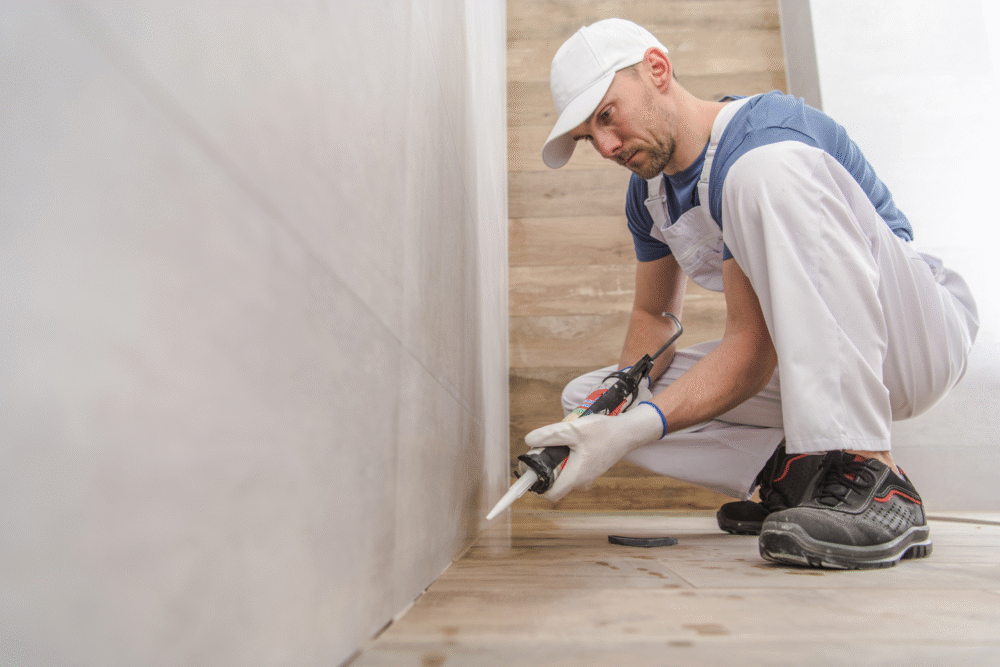
The smartest way to deal with pests is to stop them from ever getting inside. Take a careful look around your house—cracks in the walls, holes near the foundation, loose window screens, or gaps under doors are all open invitations. Use caulk, steel wool, or weatherstripping to seal them up. Mice can fit through holes the size of a dime, so even tiny openings matter.
This isn’t about hurting anything; it’s just a way to make your home less accessible. Think of it like locking your doors at night—you’re just protecting your space, not attacking the visitors.
2. Use Essential Oils to Repel, Not Kill

Nature has already given us a bunch of pest-fighting tools, and essential oils are at the top of that list. Strong scents like peppermint, tea tree, eucalyptus, and citronella are naturally offensive to pests like ants, spiders, roaches, and mice. Soak cotton balls with oil and leave them near baseboards, under sinks, or in cabinets.
You can even mix a few drops with water in a spray bottle and spritz around doorways and windows. The best part? It smells great to us. This is a gentle but firm message to pests: you’re not welcome here, and we mean it.
3. Keep Food Sealed and Crumbs Off the Floor

Want to make pests lose interest fast? Cut off their food supply. That half-open cereal box, the crumbs under your toaster, or the dirty dishes in the sink are exactly what they’re looking for. Store all pantry items in airtight containers. Wipe down counters regularly. Sweep your floors and vacuum those sneaky corners.
Don’t forget pet food either—that stuff is a magnet for ants and rodents. When your kitchen looks (and smells) clean, pests tend to move on. They’re opportunists, not houseguests. No food? No point in sticking around. It’s the simplest pest control trick in the book.
4. Set Live Traps and Release Pests Away from Your Home
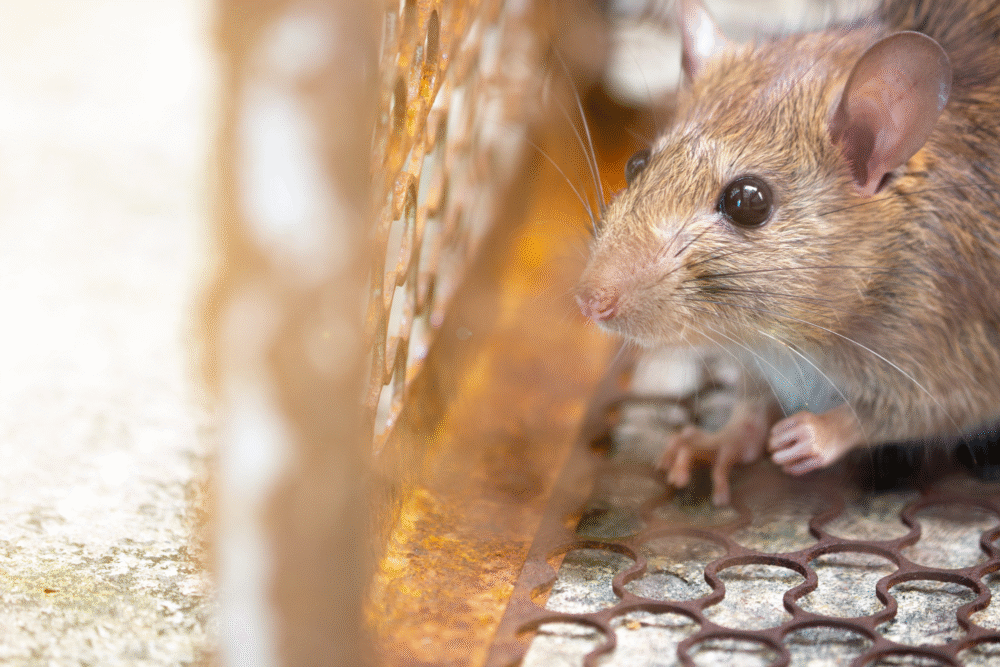
If a mouse makes it indoors, you don’t have to resort to cruel glue or snap traps. Live-catch traps allow you to safely trap and release rodents without harm. Once caught, release the animal at least a mile away from your home to prevent it from coming back.
Always wear gloves when handling traps, and check them often—you don’t want a terrified mouse sitting there for hours. This method may take a little more effort, but it’s a compassionate solution that respects life. Pests may be unwanted visitors, but that doesn’t mean they deserve to suffer.
5. Use Natural Repellents Like Vinegar and Citrus
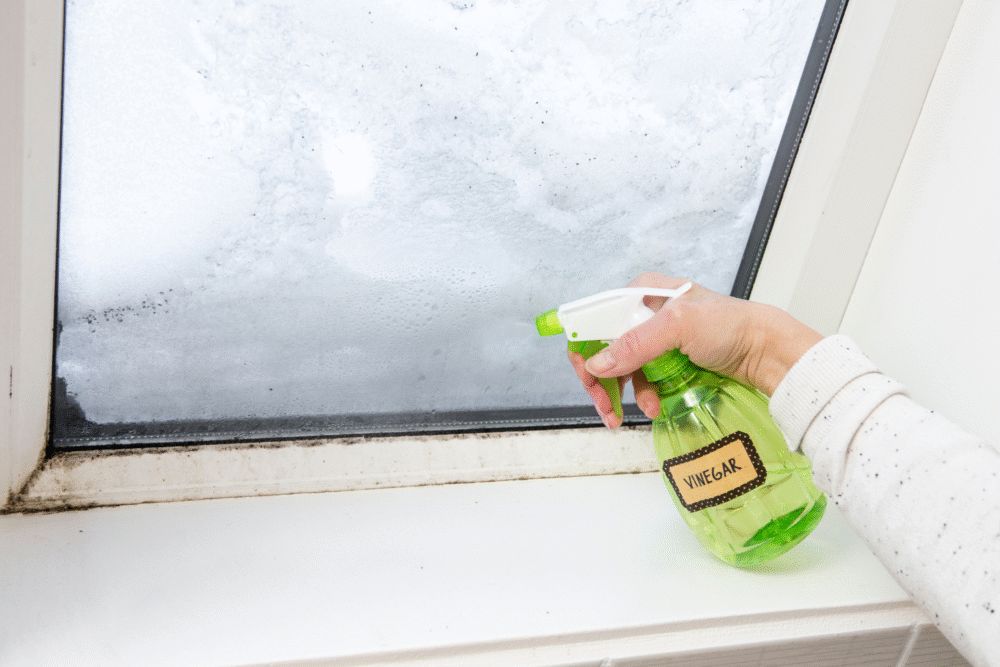
Pests hate strong smells, and some household staples make excellent repellents. Mix equal parts white vinegar and water to create a natural cleaning spray that bugs despise. Wipe down counters, spray near baseboards, or mop your floors with the mix. Citrus peels—like lemon or orange—also do the trick. Place fresh peels near windows, under the sink, or at known entry points.
As the oils release, pests back off. It’s cheap, chemical-free, and safe for kids and pets. You’re not poisoning anything; you’re just sending pests a message with scents they can’t stand. Your home smells fresh. Their party’s over.
6. Keep Your Trash Tidy and Tightly Sealed
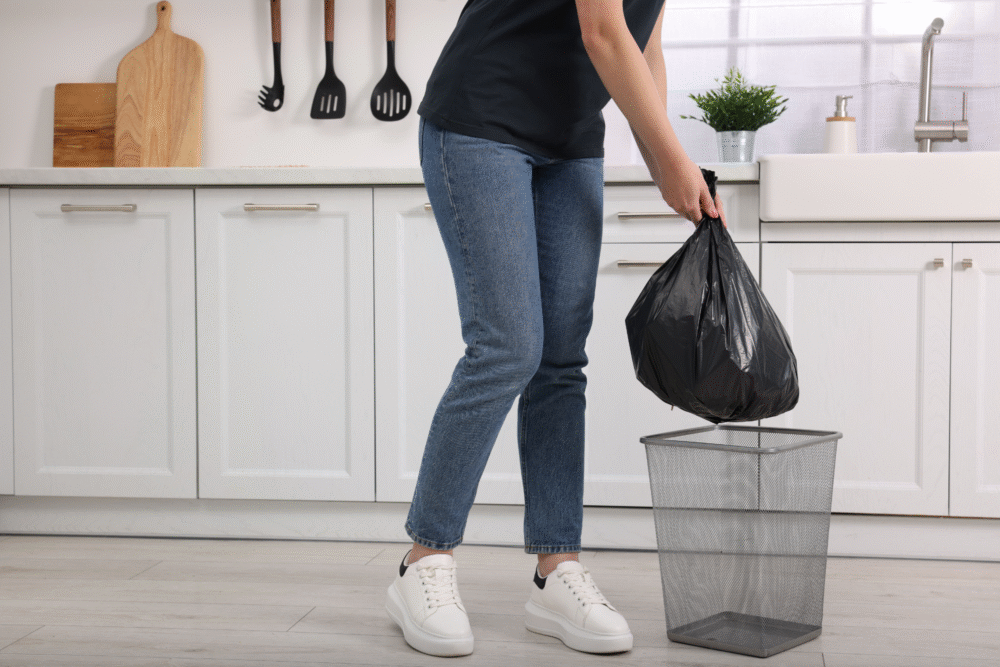
Trash is a feast for pests, and leaving it exposed is like rolling out the red carpet. Always use bins with tight-fitting lids, and take the garbage out regularly—especially in warm months. Rinse out containers before tossing them, and keep compost piles far from your home.
Don’t let food scraps, greasy napkins, or fruit rinds pile up for days. If pests can’t smell dinner, they won’t show up for it. A clean, sealed trash bin is one of the easiest ways to discourage everything from ants to raccoons. Take away the buffet, and the freeloaders lose interest fast.
7. Use Diatomaceous Earth as a Natural Barrier
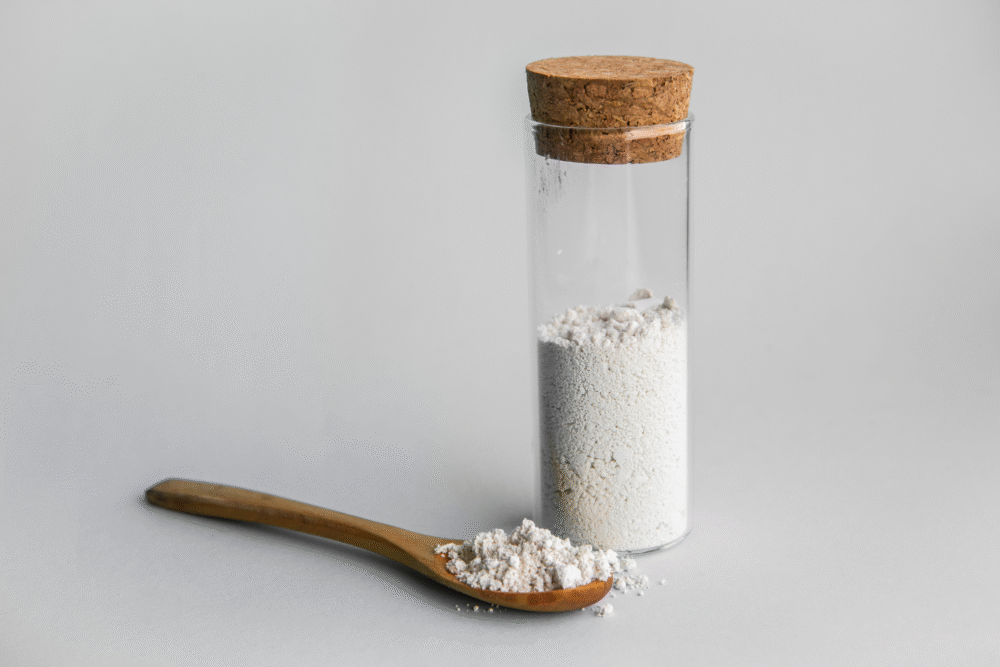
Diatomaceous earth (DE) is a powder made from crushed fossilized algae, and it works wonders on crawling insects. It looks like flour, but to pests like ants, cockroaches, and bed bugs, it’s like walking across broken glass. The powder dehydrates them, but it’s non-toxic to humans and pets when used correctly.
Sprinkle it along baseboards, behind appliances, and in cracks. Just make sure to get food-grade DE, not the kind used for pools. It doesn’t kill instantly, but it’s a dry, chemical-free solution that hits pests where it hurts without harming anything else. Think of it as eco-friendly armor.
8. Keep Your Yard Trimmed and Free of Clutter

Your outdoor space is the first line of defense. Overgrown grass, wood piles, and leaf litter make perfect nesting spots for rodents, snakes, and bugs. Keep your lawn trimmed and tidy. Move firewood away from your home’s foundation. Clear out any debris or junk that could give pests shelter.
Even something as small as a tipped flowerpot can hold stagnant water that mosquitoes love. A well-maintained yard says, “No vacancy” to unwanted critters. It doesn’t just make your space look better—it makes it less attractive to pests looking for a comfy hideout.
9. Install Screens and Door Sweeps to Block Entry
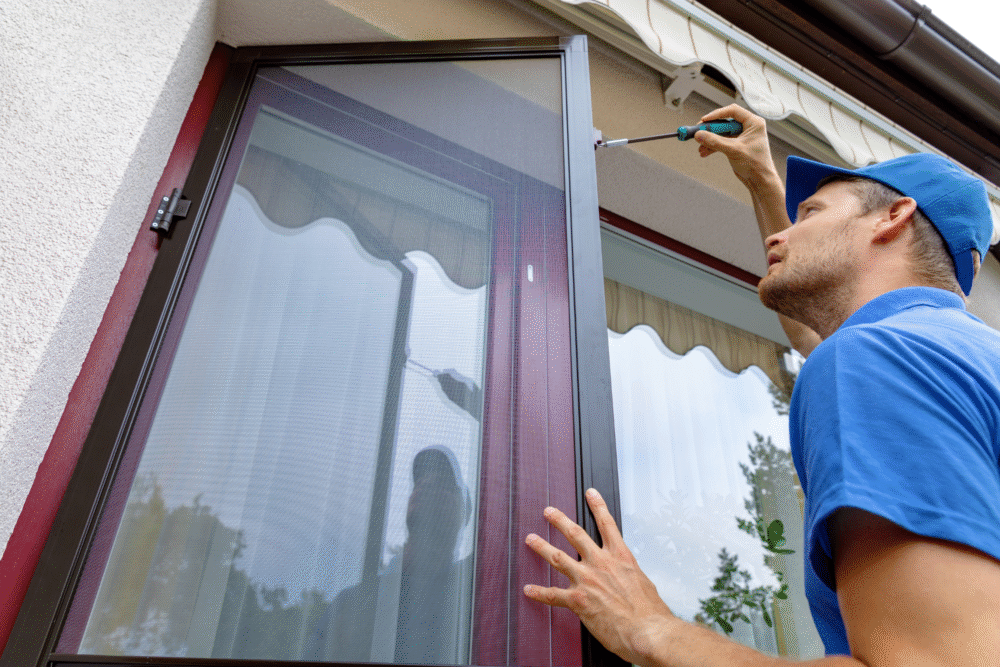
Sometimes pests don’t sneak in—they just stroll right through the front door. Installing fine mesh screens on windows and doorways keeps out flying bugs. Adding door sweeps to the bottom of exterior doors blocks crawling insects and rodents from slipping inside. These simple additions can make a huge difference.
Think of screens and sweeps as invisible bodyguards for your house. They don’t hurt anything; they just hold the line. Keeping pests out physically is often more effective than any repellent you can buy. Plus, you get to enjoy fresh air without uninvited guests buzzing around.
10. Relocate Insects Instead of Crushing Them
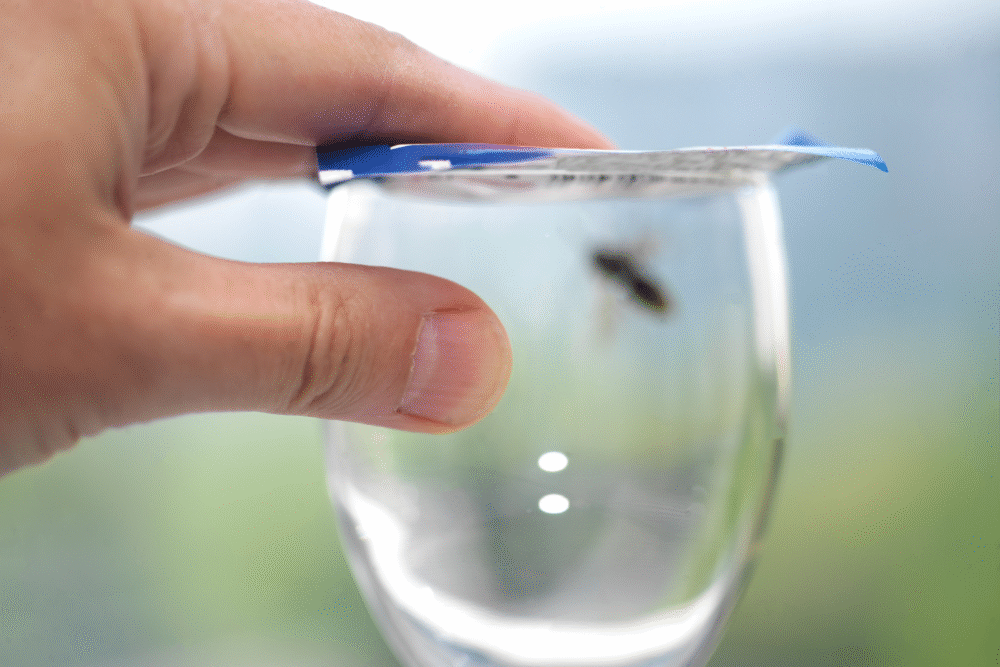
If you spot a spider, beetle, or wasp indoors, your first reaction might be to squish it. But relocating it is just as fast and a lot more humane. Use a glass and a stiff piece of paper to gently trap the insect and carry it outside. Release it away from doorways and windows.
This small act of kindness might not seem like a big deal, but every creature plays a role in the ecosystem. Plus, it teaches kids (and adults) that compassion isn’t just for pets—it extends to the tiniest of houseguests, too.
11. Try Motion-Activated Lights or Sprinklers for Outdoor Pests
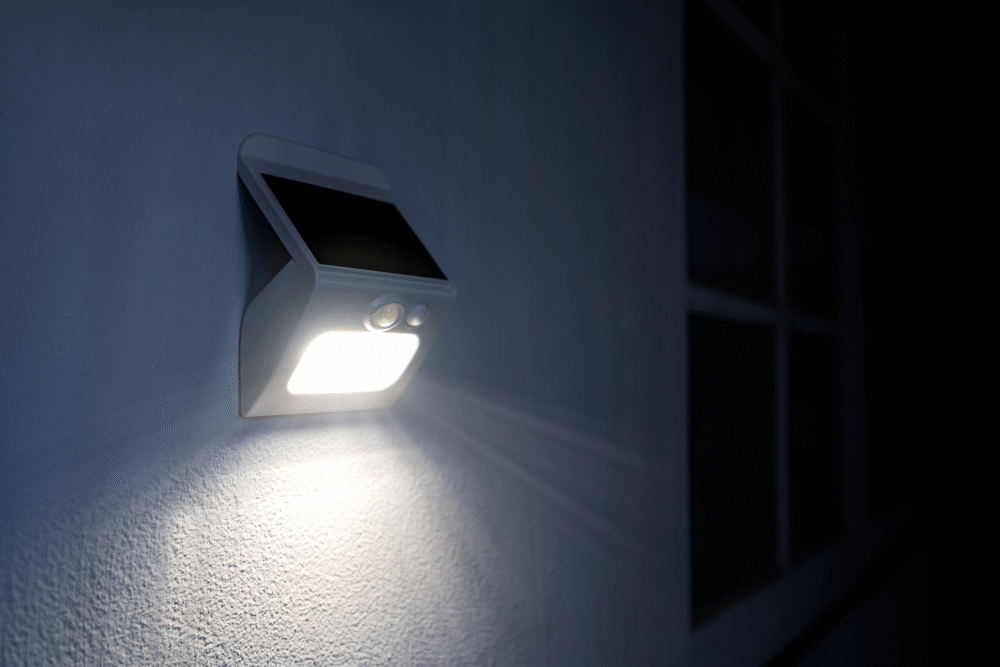
Got raccoons digging through your trash or deer munching your garden? Motion-activated deterrents like lights or sprinklers can scare them off without causing harm. When an animal triggers the motion sensor, a bright light flashes or a quick spray of water is released. It startles them but doesn’t hurt them, and over time, they learn to stay away.
It’s a gentle reminder that your yard isn’t open for business. These tools are especially helpful at night when pests are most active. Humane pest control doesn’t have to be passive—sometimes it just means choosing smarter defenses.
12. Focus on Prevention Instead of Punishment

The truth is, most pest problems can be prevented. It’s not about waging war on nature—it’s about drawing respectful boundaries. Stay ahead by inspecting your home regularly, keeping things clean, and acting quickly at the first sign of activity.
When you stop thinking of pests as enemies and start viewing them as opportunists, it becomes easier to respond with care instead of cruelty. Humane pest control isn’t about letting creatures run wild; it’s about managing your space in a way that’s thoughtful, effective, and kind. Everyone wins—even the critters you’d rather not have around.